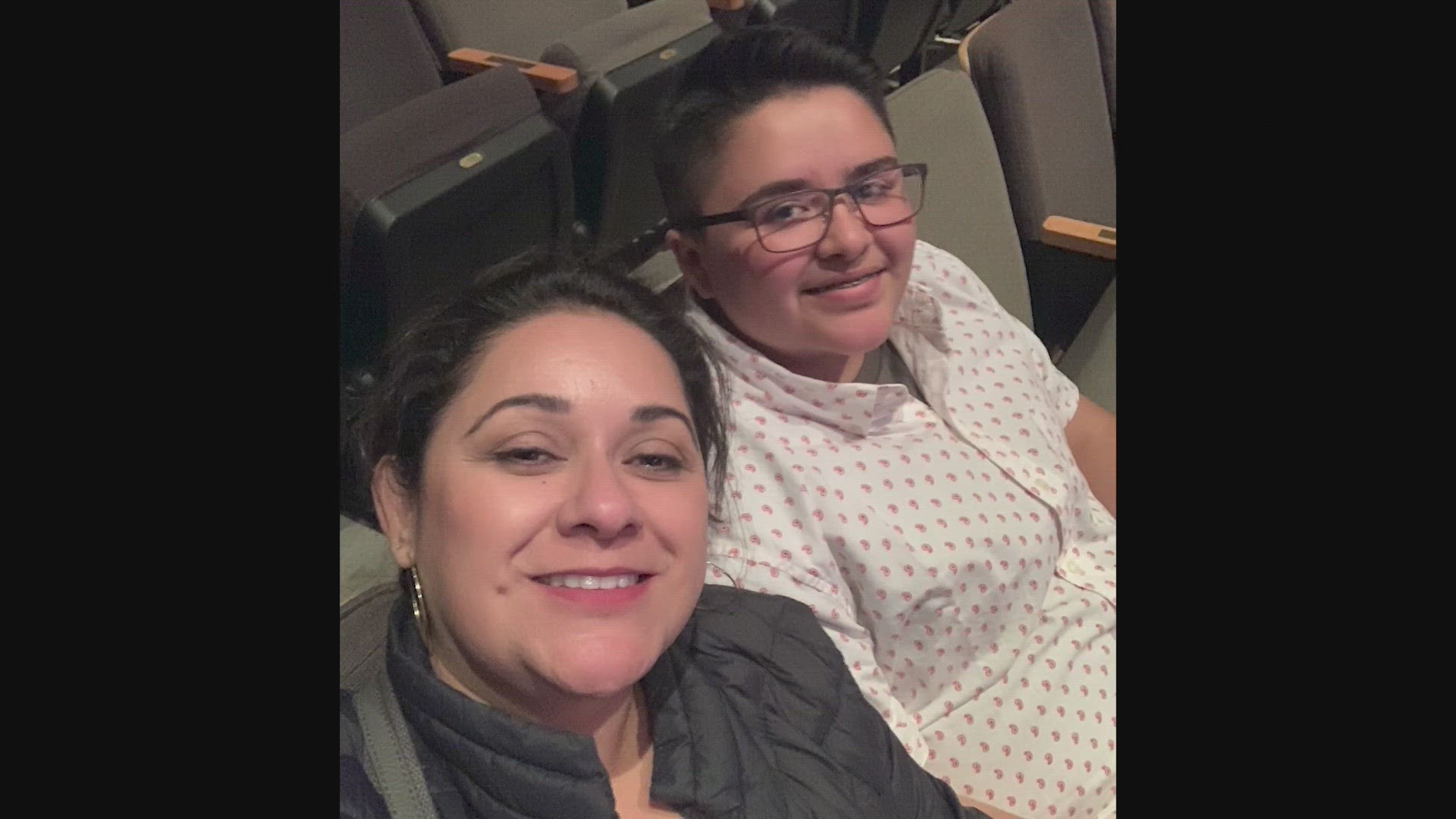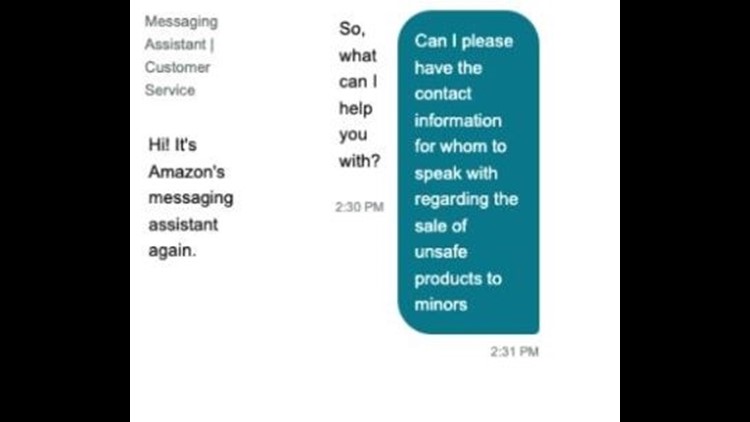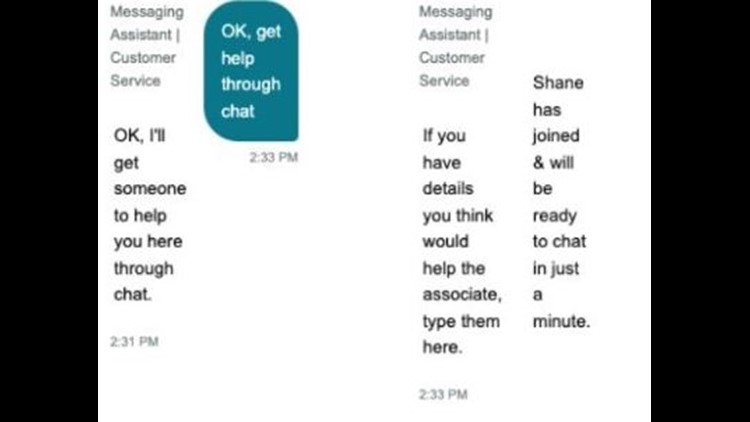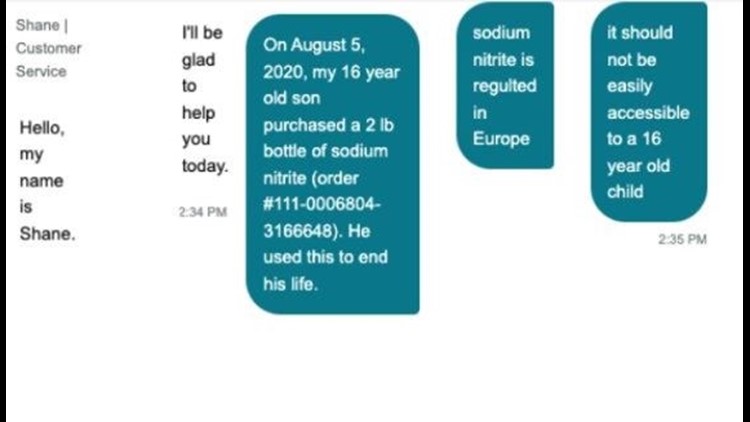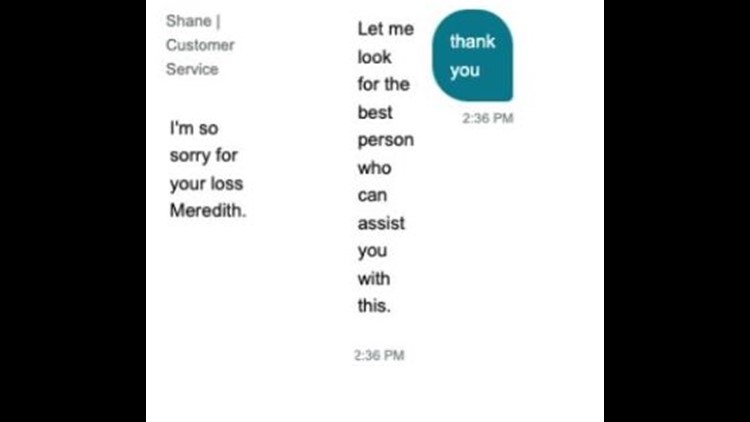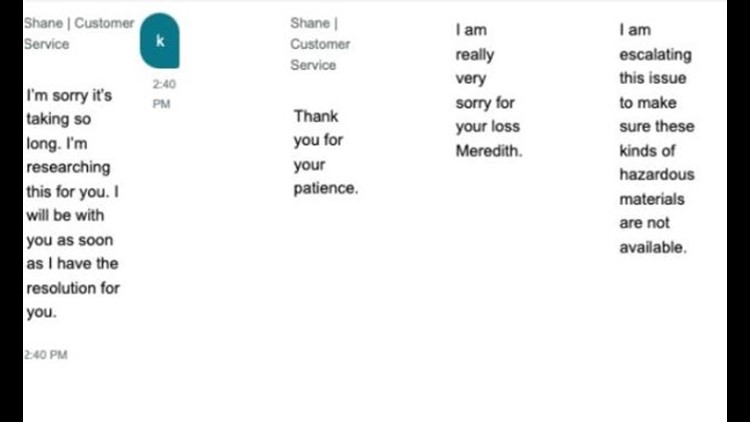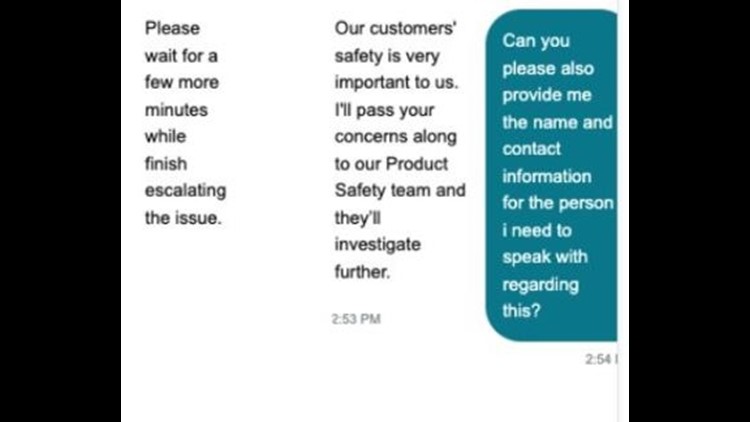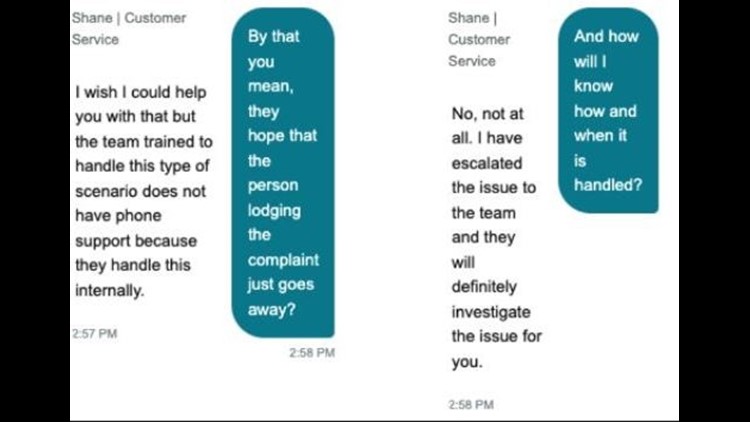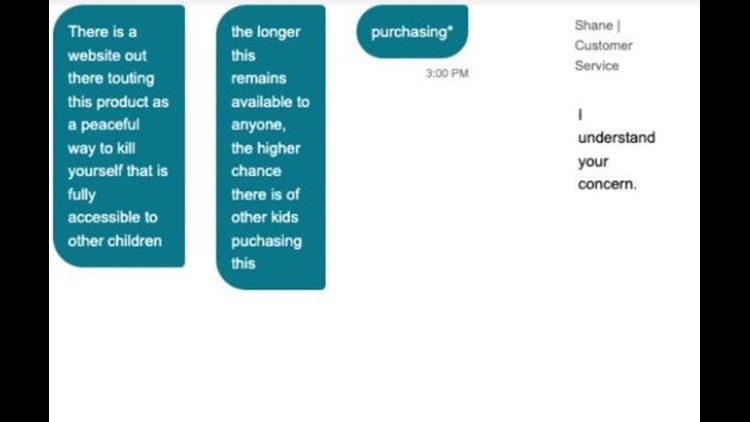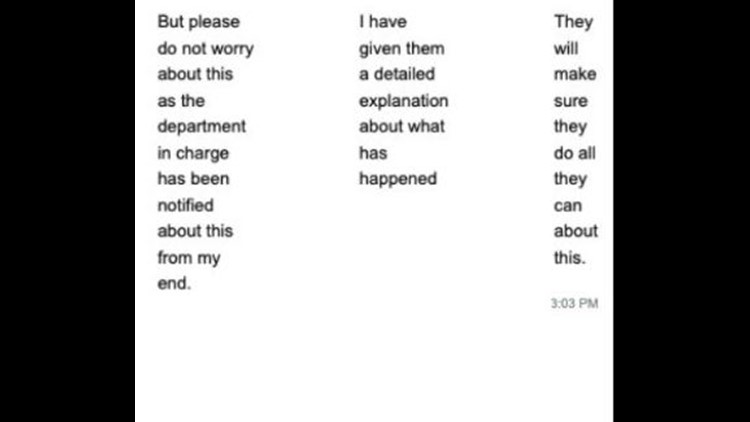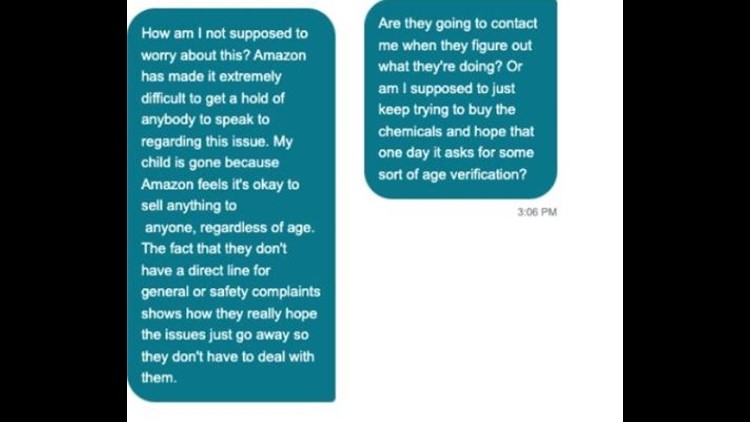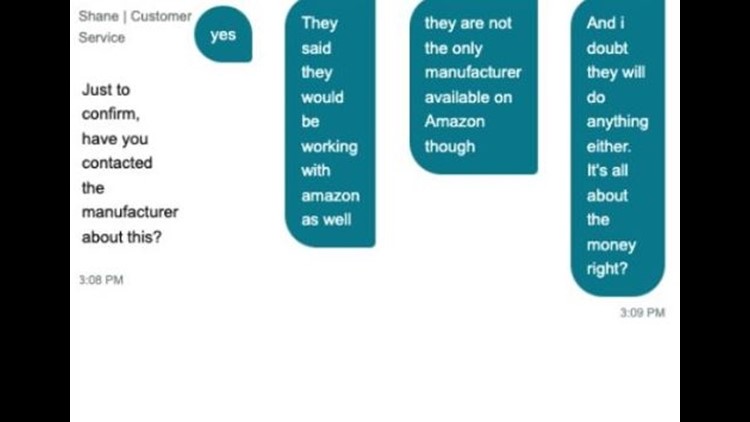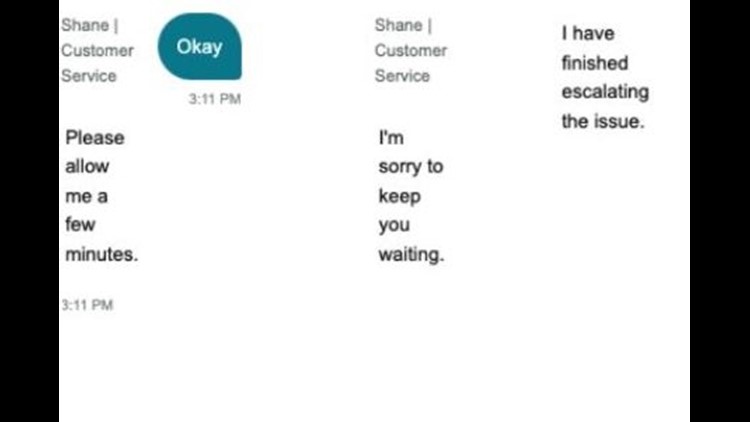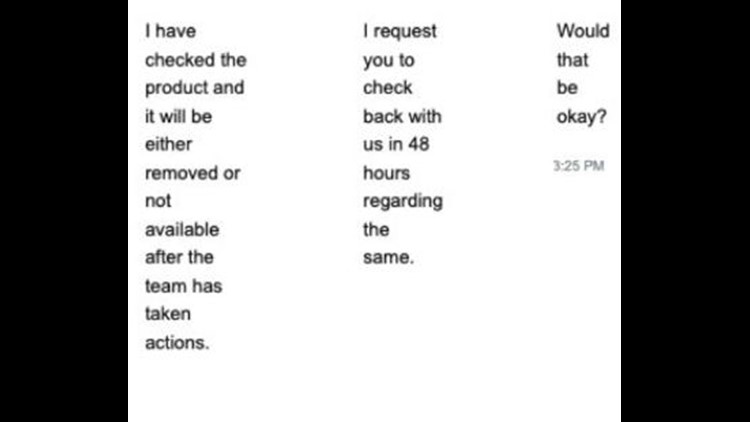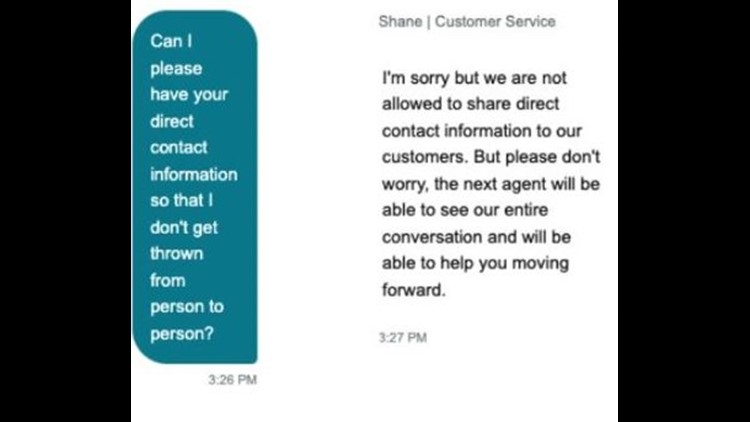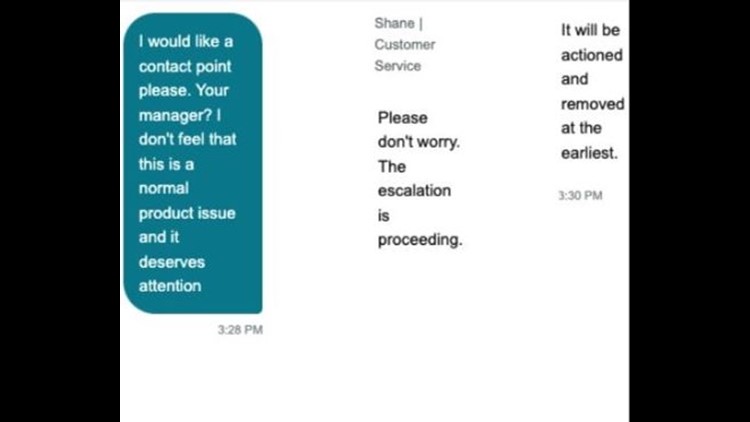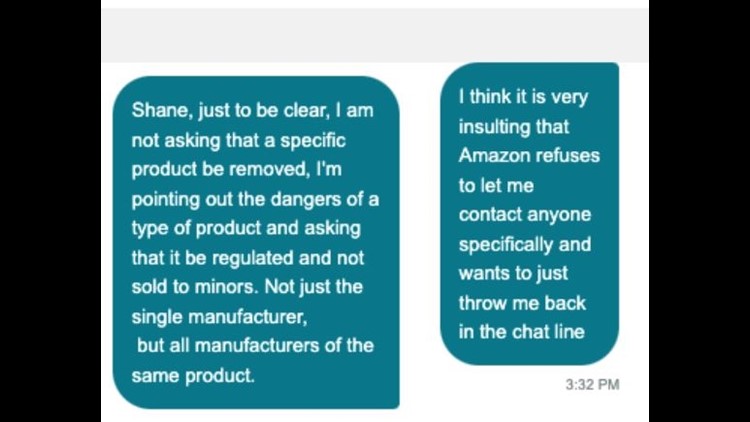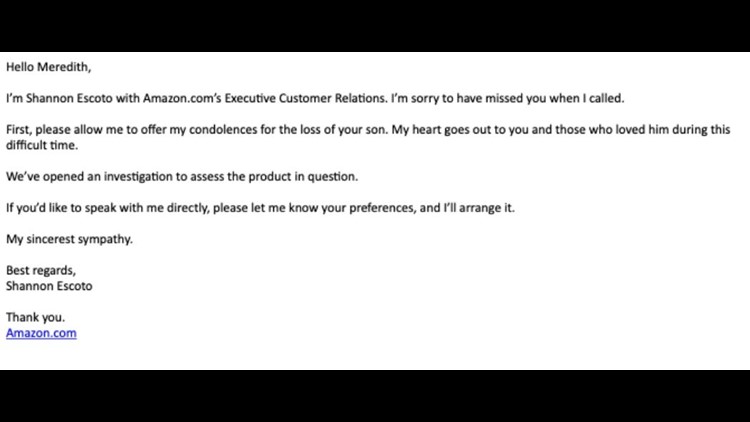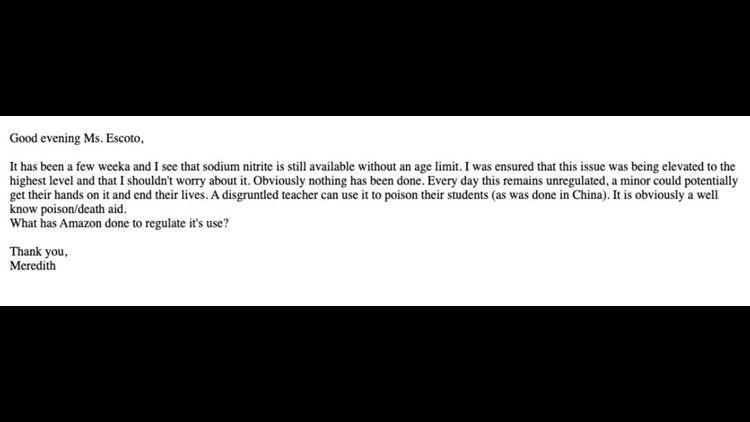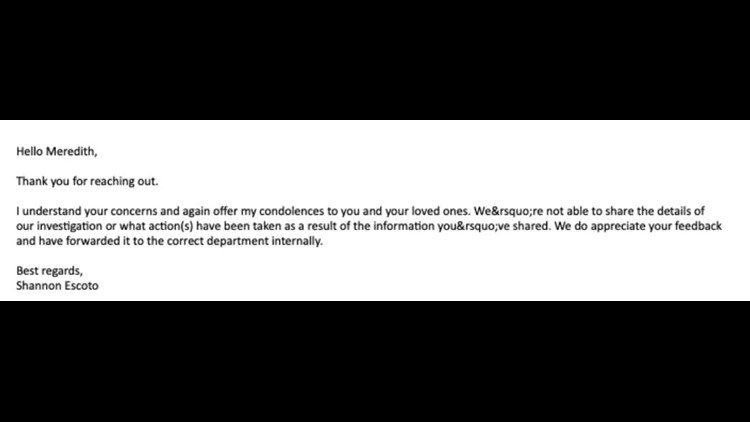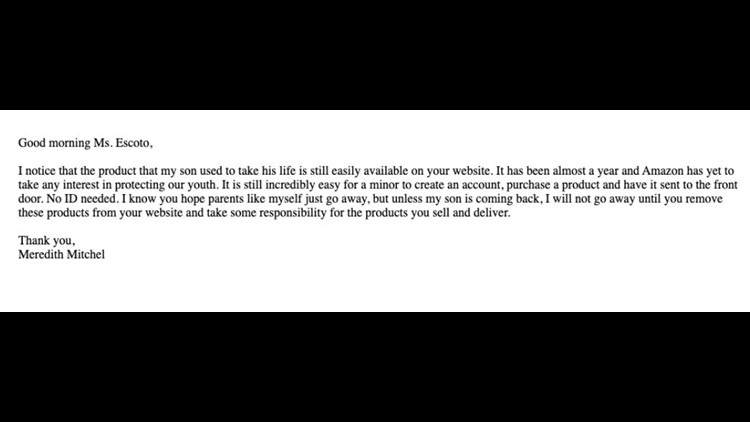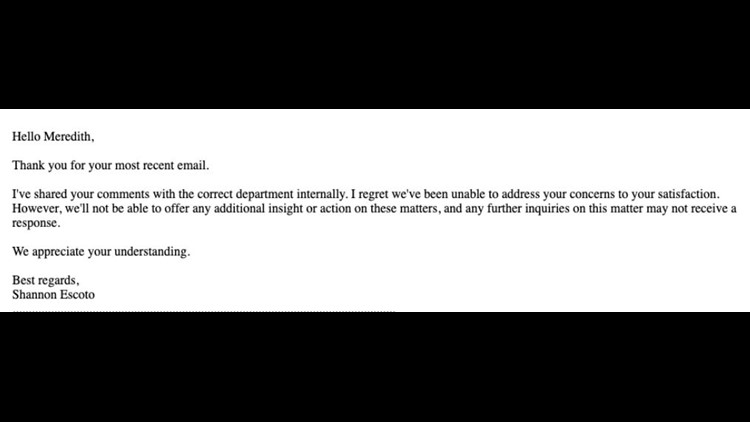Several families sue Amazon for selling ‘suicide kits’ to their now deceased children
Twelve sets of parents from across the country, including a family in Washington, accuse Amazon of ignoring warnings about selling a product used for suicide.
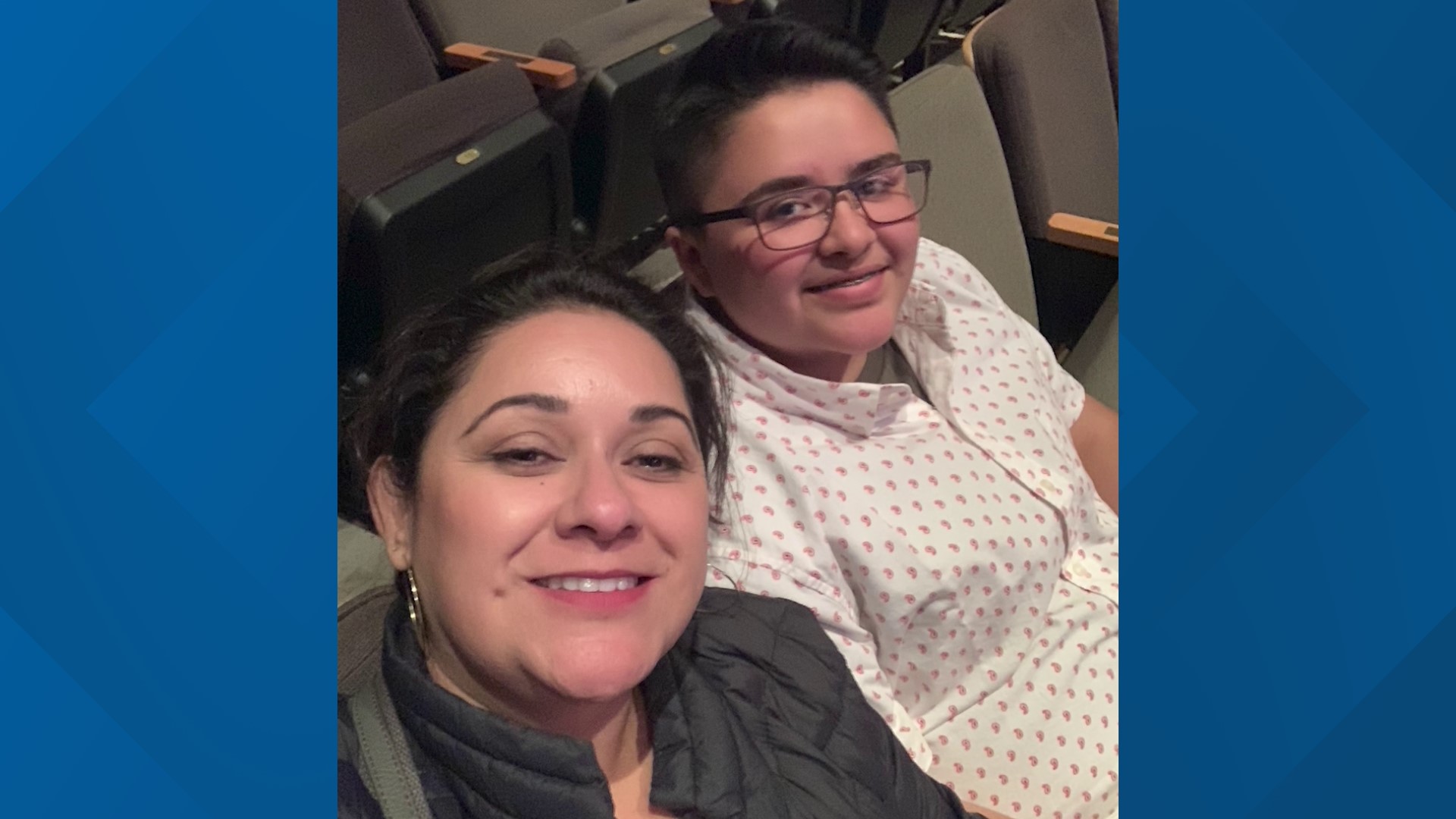
Twelve sets of parents, now plaintiffs from across the country, have all suffered the excruciating blow of a child dying by suicide. They all argue the retail giant Amazon is to blame and are suing the company.
“Amazon was supplying the means for suicide. It was profiting on suicide,” said New York City-based plaintiff attorney Carrie Goldberg.
At issue is sodium nitrite. It’s a common meat preservative when used at a strength of 6%. Court records show between 2018 and 2022 several young people bought the chemical compound at 99% strength on Amazon, then used it to end their lives. At that concentration, it’s so toxic, that it’s to be used in laboratory research or hospital settings. There’s no known household use. Records show that for four years Amazon received warnings the product was being used by people to take their lives, yet the company continued to sell the product anyway. The company removed the product worldwide in late 2022.
“To minimize the potential for product misuse, we are limiting the sale of high concentration sodium nitrite to business buyers on Amazon Business,” an Amazon spokesperson wrote in a statement to KING 5.
Records show other retailers, including eBay, Shopify and Etsy, removed sodium nitrite from their sites after learning it was being used as a vehicle for suicide. In 2019, eBay “took the voluntary decision to prohibit globally the sale of sodium nitrite as a chemical after receiving a report of potential use of the substance for suicide attempts,” wrote an eBay executive.
Parents involved in litigation with Amazon said that the company’s ban came too late.
“(Amazon) knew. It’s not they should have known. They knew,” parent Michelle Stickley, of Camas, Washington said. “But my son wasn’t worthy.”
Stickley’s 15-year-old son Tyler died by suicide in Camas in December 2020.
“I can’t get out of bed still. I stare out a window. Time goes by,” Michelle said through a stream of tears. “I don’t even know how to put it into words, how broken I feel.”

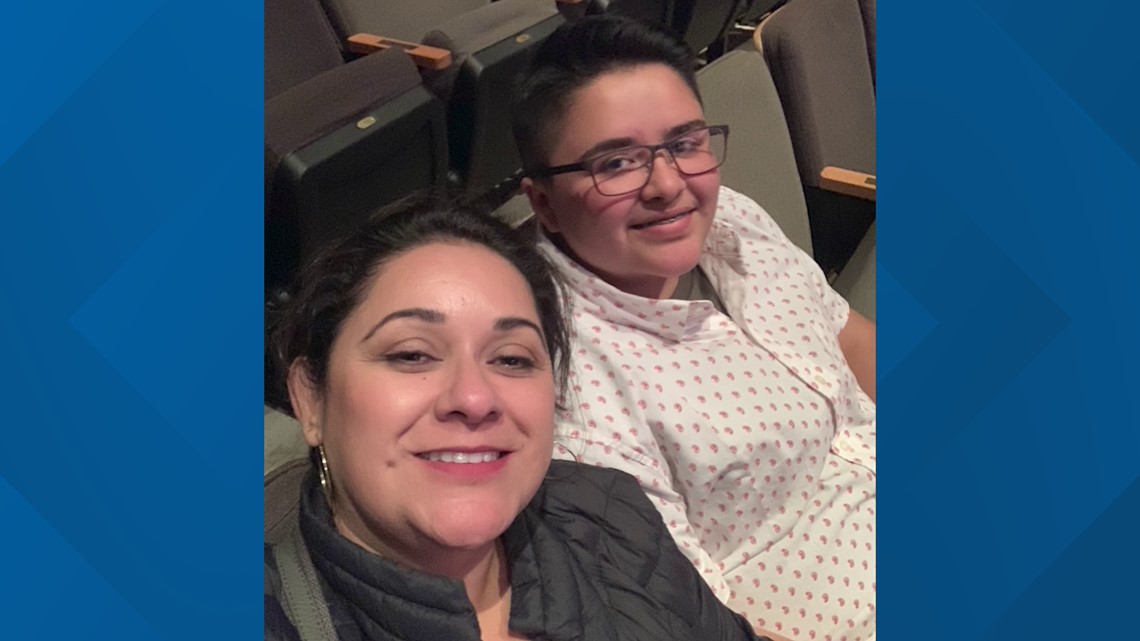
Her son Tyler, a high school sophomore when he died, was known as a compassionate soul who loved animals, science, and family. He was a gifted and prolific artist who also suffered from depression. Stickley said the family provided support including therapy, medication, and access to health care, yet no one prepared them for what Amazon was offering.
“Everything was locked up. Our medications were locked up. I checked on him before he went to bed. I checked on him in the middle of the night,” Stickley said. “Everything that I could think of. But nobody said, ‘Did you check his Amazon (account)?’”
Tyler goes missing
Tyler went missing on December 14, 2020. He told his mom he was going for a walk. When he didn’t return home on a cold, wintery afternoon, a grueling two-day search ensued. A sheriff’s deputy found Tyler’s body in a wooded area of his high school, a quarter mile from his home, with a water bottle by his side.
During the search, his family looked for clues and found one on Tyler’s computer: an unexpected and unusual $19.99 purchase on Amazon for something called sodium nitrite.
“I remember handing him the package, putting it on his bed. And he said, ‘Thanks Mom.’”
At the time Stickley thought Amazon had shipped her son art supplies, not a highly lethal compound Tyler would mix with water and drink from the water bottle found by his body.
But how could Amazon be responsible for a child’s suicide? How could the company know the product was being used by people to take their own lives?
Amazon receives warnings
The KING 5 Investigators reviewed dozens of legal documents, emails, live chat messages and letters from parents, attorneys, members of Congress, as well as reviews on Amazon’s own website. The documentation shows the company was warned for at least four years that young people were buying the product on its site and using it to kill themselves, yet Amazon didn’t take action until October 2022. In the years the warnings weren’t heeded, several other people, including Tyler, bought sodium nitrite and used it to end their lives.
Meredith Mitchel of Colorado waged a relentless campaign to pressure Amazon to quit selling sodium nitrite after her 16-year-old Ayden died by suicide in August 2020. Court records from a lawsuit she filed in 2023 show she first tried to get Amazon’s attention by trading 56 live chat messages with an Amazon customer service representative.
“My son used it to end his life,” Mitchel wrote. “The longer this remains available…the higher chance there is of other kids purchasing this.” The mother repeatedly asked, unsuccessfully, if she could speak with a manager. The customer service agent assured her, “Please don’t worry…The product will be either removed or not available after the team has taken actions.”
Mother tries to explain dangers of sodium nitrite to Amazon customer service
Amazon kept selling the product for two more years. During that time other young people, including Tyler, bought sodium nitrite and used it to take their lives.
“It’s the saddest and clearest illustration of how preventable Tyler’s death was. Because Amazon had an opportunity to simply choose not to sell sodium nitrite,” said Kaitlin Cherf, plaintiff attorney for Tyler’s family.
“We extend our deepest condolences to the families and loved ones personally affected by suicide,” wrote the Amazon spokesperson. “Sodium nitrite is a legal and widely-available product offered by retailers to preserve foods, such as meats and fish, and for use in laboratories as a reagent. High concentration sodium nitrite is not intended for direct consumption, and unfortunately, like many products, it can be misused.”
“The fact that you know certain people are misusing a product does not mean that you are causing their misuse of it,” said Amazon attorney Greg Miller in a January 2024 court hearing.
Online prompts to buy other suicide supplies
Tyler’s family has filed a lawsuit against Amazon and they’re not alone. Eleven other families from across the country are taking the retailer to court in King County where the company’s headquarters are located. All the plaintiffs argue Amazon didn’t just sell poison but “veritable suicide kits.” When purchasing sodium nitrite, the website’s algorithm prompted customers to buy additional supplies that could aid in committing suicide. The products included “Tagamet,” a medication to keep you from throwing the mixture up and a book entitled “The Peaceful Pill.” The book is a step-by-step suicide handbook with a dedicated section on sodium nitrite.
“They need to be held accountable,” said New York-based plaintiff attorney Naomi Leeds. “They need to look these (families) in the eyes. They never have to. They never have to see what real pain these people are going through.”
Records show pro-suicide websites were touting sodium nitrite as a quick way to end your life. Some provided links to buy the chemical on Amazon. Tyler’s computer history shows he secretly visited those sites in the weeks leading up to his death.
In legal filings, Amazon argues the company “didn’t act negligently” and that the people who killed themselves are responsible. “Here, the decedents’ death were…caused by their voluntary choices to commit suicide by intentionally ingesting an industrial-grade chemical, not from something wrong with the product,” wrote an Amazon attorney.
Michelle Stickley said she did everything she could to protect her son, but that was no match for the biggest online retailer in the world.
“I think it’s my job to keep him safe and healthy and Amazon didn’t let me do that.”
How to get help
If you or someone you know is in crisis, call the National Suicide Prevention Lifeline at 800-273-8255, text HOME to 741741 or visit Vibrant Emotional Health’s Safe Space for digital resources.
SUBMIT A TIP: The KING 5 investigators rely on your confidential tips to do important journalism. Help us shine a light on systemic problems, widespread injustices, corporate malfeasance and government failures across Washington state. Filling out this form is the simplest way to share information with our team of investigative reporters.

